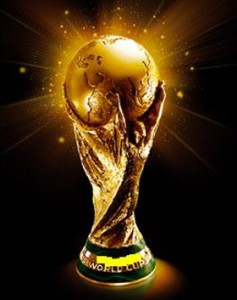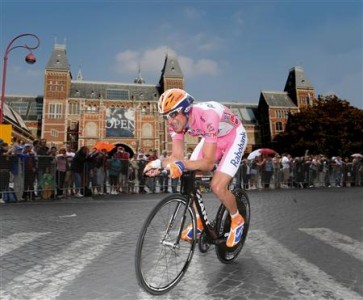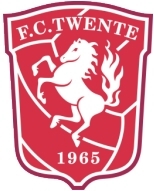 All candidates for the 2018 World Championships Football have handed over their bid books to the FIFA. Which will be the country that the championships will be awarded to? We have to wait until December 2 but will briefly compare the 6 major candidates and their bids as well as their chances to succeed. The UK and Russia seem to be favored by the bookies, but could they be wrong?
All candidates for the 2018 World Championships Football have handed over their bid books to the FIFA. Which will be the country that the championships will be awarded to? We have to wait until December 2 but will briefly compare the 6 major candidates and their bids as well as their chances to succeed. The UK and Russia seem to be favored by the bookies, but could they be wrong?
Bid books for 2018 have been handed over. Delegations from each of the candidate nations have handed over their bid books for both 2018 and 2022 to FIFA. For 2018 the candidates are the UK, Russia, Spain/Portugal, Holland/Belgium, Australia and the USA. The final decision on to whom the World Cup 2018 will be awarded to will be taken on 2nd December 2010 by the 24 members of the FIFA Executive Committee. As history has proven, the best bid will not necessarily always win, as lobbying and politics play an important role in the process. In spite of this, each bidding country still has to demonstrate that: 1. It complies with the bidding process; 2. The anticipated impact on the game and society as a whole; 3. The support from the government, general public and football community; 4. The Infrastructure and management capabilities to host the tournament; 5. An innovative and meaningful legacy programme for after the event.
Bid likely to be awarded to Europe. On several occasions FIFA strongly hinted that Europe will be given the 2018 finals, with England and Russia competing against joint bids from Netherlands-Belgium and Spain-Portugal. All four are also in the 2022 race but will be barred if one of them gets the 2018 tournament. If indeed Europe will end up with hosting the World Cup 2018 this would effectively rule out the bids of the US and Australia, who in that case would have to put their focus on 2022. Europe seems to be the preferred choice as the powerful UEFA (which has a large number of votes) wants to see the tournament on the continent again, after South Africa in 2010 and Brazil in 2014. Moreover FIFA also seems to opt for a financially interesting tournament; TV income, ticketing and commercial deals in Europe no doubt would be strong. Although FIFA has stated in the past they would rather not see joint candidacy bids, FIFA’s Blatter specifically stated that this is no longer the case and that these bids will be treated the same as single candidacy bids.
Politics and lobbying will be key determinants and that makes the outcome so unpredictable. Clearly the content of a bid is important, but politics and the lobby process in the end will be the key. The exact voting procedures to be adopted are still unknown. However, they will involve a majority decision. It means that in order to win, a bid has to have the vote of at least 13 members of the FIFA Executive Committee, which contains 24 members in total. This also means that each member needs to have a second and third choice ready in case their first choice does not make it passed the first vote. As said the exact procedure is not known yet; are the two World Cups being voted in sequence or are they for example being undertaken simultaneously. Those elements can be crucial for the lobbying process. In any case Michel Platini and his UEFA mates have 8 votes (more than any other blocs) out of 24 and no doubt he will encourage his allies to work together for Europe, particularly for round 2 and 3 of the voting process. As said politics will play a vital role. Different blocs will no doubt attempt to make deals in exchange for votes. Who will vote for whom? Will South America go for the Spain/Portugal bid, where will the Africa votes end up (in Russia maybe?) with? The political massaging and powerplay have already begun; England played Trinidad and Tobago in a friendly match in the hope that the CONCACAF president- a native of T&T- would support England’s 2018 World Cup bid. The Netherlands has already been in South Korea (also a member of the Execucutive Committee) with, no surprise, Korea’s much adored Guus Hiddink in the delegation. Coincidentally the proportion of friendly matches in countries with Executive Committee members has gone up over the last year etc etc. In any case without a good lobby a country bid won’t stand a chance! Countries should concentrate on both the first, second and third choices of executive committee members. Strategy required!
The current bids explained! Clearly all bids are in line with the requirements. It means that all of the candidates have 11 to 12 stadiums capable of housing 40,000 people and one capable of housing 80,000, it means all of them have a legacy, organisational capabilities and government support. Nevertheless all of the bids vary in originality, viability etc. Each of the bids has advantages and disadvantages. We will briefly stand still with each and every bid.
Australia
Theme: Come play! Australia is emphasising its experience, stability and certainty along with its great hospitality, many volunteers and friendliness. As known the country has a proven track record and has the backing of some famous names. There is no doubt that Australia can organize a great World Cup, but the odds for 2018 seem to be against. Firstly it would mean that for the 3rd time in a row the World Cup would be organised in the Southern Hemisphere, which seems to be a big disadvantage. Secondly there is some opposition from other sports leagues in Australia over stadium usage and scheduling. Thirdly and most importantly, it seems that the World Cup will take place in Europe. Hence we would not be surprised if Australia withdraws from the 2018 bid to concentrate entirely on 2022.
USA
Theme: The game is in US! The USA plays the infrastructure card in its bid. The infrastructure is already existent, featuring some of the biggest stadiums in the world and offering large flexibility. The country focuses on the success of the FIFA World Cup 1994, which resulted in strong growth of the sports and now wants to extend that legacy for another 25 years. Additionally the organisation has the support of President Obama. The US would clearly be a safe play; the best infrastructure and scale should be a guarantee for record attendances similar to 1994. That would clearly result in windfall profits for FIFA. Nevertheless chances seem to be second to none as far as the 2018 bid is concerned. Yes, Mexico has announced it will support the bid and possibly some other countries in the region might do this as well, but this will be far from sufficient to convince the other members. As stated, it is very likely that a European candidate will be chosen, whilst an additional disadvantage can be found in the fact that it is not that long ago that the US hosted the World Cup. Again and similar to Australia we would not be surprised when the US would withdraw in order to fully focus on 2022.
Netherlands/Belgium
Theme: Together for great goals! The Netherlands is generally seen as an outsider but they have a great package to offer, which goes beyond the tournament itself. This bid is clearly focusing on social responsibility, emphasising green, environmentally friendly and social themes. A few examples; it will offer a Sustainable Stadium Toolkit to the rest of the world, it will support the development of world coaches in developing nations (Train the trainer) and it aims to organise the most sustainable World Cup ever (giving 2 million bicycles away to fans during the cup). Adding to this, stars such as Ruud Gullit and Johan Cruyff, the countries organisational capabilities (EURO2000) and its famous orange army and we would argue that this is actually a quite charming bid. Will this be sufficient? Some argue that the size of the 2 countries may play a negative role, but one can also turn around this argument by stating that a big event such as the World Cup should not be monopolised by the big countries. Hosting the World Cup in a smaller country would be a good stimulus for many other countries to also organise big tournaments. Moreover, don’t forget that the majority of the FIFA Executive Committee contains members from, you guessed it, smaller countries….. The cons? Both countries have a lot to do on the expansion of their facilities, whilst they run the risk to be muscled out by their larger European rivals. Hence a lot needs to be done on the lobby and political front, but it is far too early to rule this bid out……..A role as outsider fits the lowlands well!
United Kingdom
Theme: England United, the World Invited! England is the clear favourite under the bookies but is this really justified? Obviously the bid is playing out the economic benefits, its heritage and tradition and the popularity of the Premier League. Undoubtedly the UK has a lot to offer. It would clearly bring the highest commercial revenues for FIFA, backed up by the international appeal of the Premier League. Additionally, the infrastructure is already largely in place with a couple of very impressive stadiums lined up. Clearly the UK has football in its DNA, whilst it has been a very long time (1966) ago that it has hosted a major tournament. The fact that the country can organize the World Cup needs no convincing, it has already everything. However, this is also where the danger is. Arrogance and complacency may be on the lure; any hints of England being the divine candidate could be potentially damaging. Additionally the recent Lord Triesman (FA boss and leader of the bid team) scandal might have hurt England’s World Cup ambition. This also reveals another potential danger; the British press being permanently on the look-out for scandals. Summarising the main danger for England is probably the motherland itself!
Russia
Theme: Ready to inspire! Russia seems to be a very solid contender. The country clearly plays the “legacy” card and tries to position itself as a new hidden continent for football, being a bridge between Eastern Europe with an enormous untapped reservoir of potential new football players; in the last few years football has grown by 50% in Russia. It also believes this could be a catalyst for social change. Additionally the country has promised new stadiums in 13 cities, all of them of the highest qualifications. The fact that the country has never hosted the event before could work in their favour, as Rio has blatantly proven. Finally Russia has deep pockets and a strong team with its key asset, Andreas Herren, who joined after holding the top PR role for years at Fifa, where he is well connected. Nevertheless there are some cons as well. Security is a main concern as are the distances between venues and the touristic infrastructure. With most of the stadiums still to be buid and the difficulties faced by South Africa and Brazil freshly in their minds, FIFA officials may be wary, particularly given the fact that the construction of the Zenith St Petersburg stadium is already behind schedule. In any case Russia should be seen as a formidable contender, particularly given the World Cup’s legacy being far bigger in Russia than in any of the other countries.
Spain/Portugal
Theme: Two nations, one common goal! The Iberian bid aims to emphasize the unity between Spain and Portugal and their ability to organise safe, well organised and particularly a fun and entertaining World Cup event. The bid seems to lack a real legacy or theme and seems to be relatively introspective (for example no website in English etc). Nevertheless, the joint bid of Spain and Portugal is seen as a strong contender. The bid will probably get the support of the South American bloc Conmebol (good for 3 votes), whilst Spain and Portugal have a strong tourist infrastructure and two of the best stadiums (Bernabeu and Nou Camp) in the world, a desire for any tournament organizer. Both countries have good organising skills, having recently hosted some big tournaments. The latter could of course also be seen as a negative, whilst the country is also facing this other big negative: the state of the economy, which is not an easy one to pass by.
Bookies still go for England, but race is far from over……I personally would be surprised when either the USA, Australia or Spain/Portugal would win the bid for 2018. The UK and Russia should be regarded as the big favourites, but I wouldn’t rule out the Holland/Belgium bid, which receives a lot of sympathy. We have to wait and see! If we have to believe the bookies it will be England, followed by Russia. Here are the odds of Betfair: England 2.54, Russia 3.5, Australia 5.5, Portugal/Spain 7.4, Netherlands/Belgium 12, USA 20. However we know, the bookies are not always right…….

